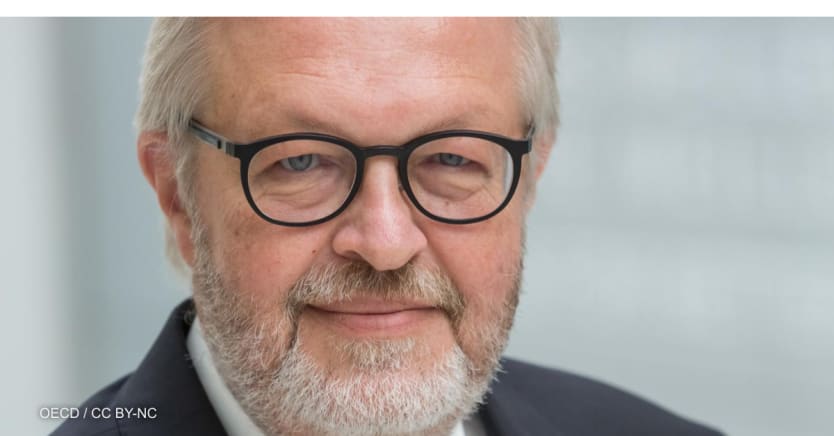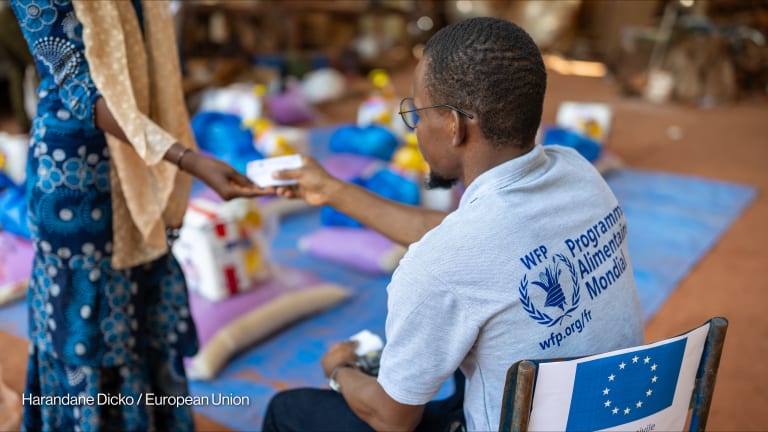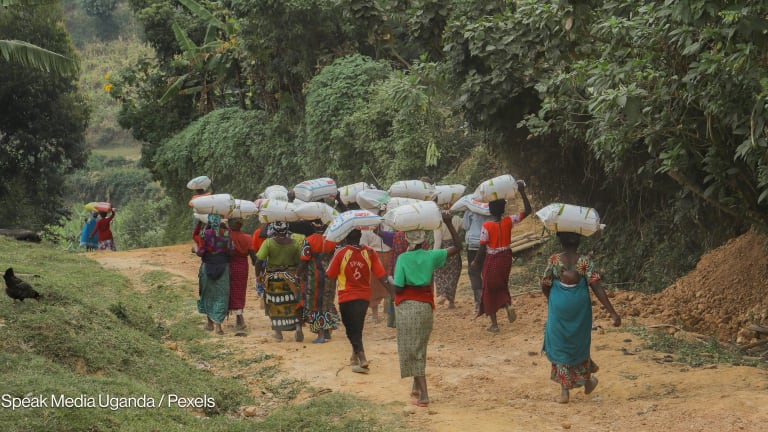How donors broke for Denmark in race to chair aid rule-setting body

The Organisation for Economic Co-operation and Development’s influential development assistance committee, or DAC, has split almost down the middle on who should be its new chair, with an experienced candidate from Denmark finally edging a younger ex-development minister from Norway in the runoff.
Carsten Staur, who is currently Denmark’s permanent representative to the OECD, won the support of 16 members in the ballot, which concluded Wednesday night, compared to 13 for Norway’s Nikolai Astrup. Two members of the 31-member committee voted for neither candidate, though which way each member voted remains secret.
Pierre Duquesne, who has represented France at International Monetary Fund, World Bank, and OECD, was eliminated in the first round of voting after failing to impress members during his interview, which some called “long” and “philosophical”. That’s an embarrassment for France, a diplomatic powerhouse, a major provider of development assistance, and the host of the OECD in Paris.
“We also need to see more transparency around how the DAC makes decisions and more access to vital information that ensure they are held to account by the communities they serve.”
— Nerea Craviotto, senior policy, and advocacy officer, EurodadStaur, the first Dane to hold the position, will be elected by consensus at a meeting on Dec. 6. However, the tight race hinted at the challenges ahead for Staur. The DAC sets the rules on what donors can count as aid, with the chair setting the agenda and trying to find consensus on contentious topics on which donors have entrenched views, including how to count excess vaccine doses, in-donor refugee costs, and private sector instruments such as budget guarantees.
"I think the future DAC chair should look at the numbers on the vote and see that his win was marginal," one official from a DAC member told Devex.
Astrup won more votes in the first round of voting, but Staur made up ground, prompting speculation that lobbying from national capitals made the difference. Denmark is an EU member state and Norway is not, but the European Commission, which is the only non-state member of the DAC, told Devex this week that it would not be interfering and that the final decision should be “fully governed by the merits and the programme and interviews of candidates.”
Staur offered impeccable credentials for the role: He is the current permanent representative to the OECD, with past stints to the United Nations in Geneva and New York, as well as six years helming Danish aid agency Danida.
Astrup — who is 44, compared to Staur’s 68 — was briefly Norway’s development minister and hails from the country’s Conservative Party.
The two also produced differing vision statements, seen by Devex.
Staur offered a fairly classic vision of ODA, calling it “the jewel” in the DAC’s crown and noting that emerging measurements of donor effort, like Total Official Support for Sustainable Development, lack “the same universal and longstanding political recognition.”
Meanwhile, Astrup’s pitch to countries focused more on the need to “utilise new innovations, technologies, and digitalisation initiatives”. And he wrote that he would “Safeguard the integrity of ODA, whilst recognising that achieving the SDGs goes far beyond ODA.”
“This requires looking into how we fund and provide global public goods and facilitate multisectoral involvement,” Astrup wrote.
When it came to their interviews on Nov. 18, Staur was asked by the U.K. what one thing he would change about the DAC if he could. He replied that he would expand participants in formats such as Tidewater, the informal annual gathering of ministers of development cooperation from DAC members.
On China, which is not a DAC member, Staur said that he was not naive but would have no issue with liaising with Beijing and that his seniority would be an asset. And asked to name the first three countries he would reach out to in the new role, he cited China, India, and Brazil.
On the working of the DAC, he said its consensus approach was a source of strength, rejecting the idea — floated by Duquesne as worth considering — of allowing for decisions to pass even if one member disagreed. Staur said he would work through what is not acceptable to each member until all felt comfortable with a given proposal. And in another reassuring moment for smaller DAC members, he emphasized their ability to bring intense interest and focus on one topic, complementing large donors’ analytical work
Asked by Spain how he saw the DAC in 10 years, he said he wanted to bring more OECD members into the group.
And asked by the Czechs how aid relates to donors’ foreign policy interests, he offered a candid analysis, saying the choice of aid-receiving countries has always been politically determined. That’s led to both donor darlings and orphans, Staur said, adding that even humanitarian aid has sometimes been stretched to make it more part of foreign policy.
Officials from Denmark and Norway did not immediately respond to requests for comment.
Reacting to Staur’s appointment, Nerea Craviotto, senior policy, and advocacy officer at the European Network on Debt and Development, or Eurodad, told Devex by email that he had the chance to stop “a slow erosion of the rules governing what counts as aid”, where wealthy donors received increasing amounts of their own aid money — a trend exacerbated by countries claiming the cost of hosting Ukrainian refugees.
Craviotto added: “We also need to see more transparency around how the DAC makes decisions and more access to vital information that ensure they are held to account by the communities they serve."
Search for articles
Most Read
- 1
- 2
- 3
- 4
- 5








